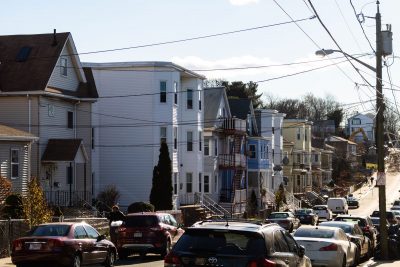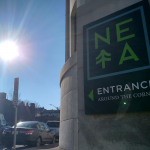The City of Boston is offering about $30 million in funding to build or preserve affordable housing developments.

Mayor Marty Walsh announced two requests for project proposals Monday to determine how the funds will be allocated.
Each year, the City offers funding for affordable housing projects. Applicants for 2020 funding must submit their project proposals by Sept. 28.
“Affordable housing for all families is crucial now more than ever, and the urgency for safe, stable income-restricted housing has been highlighted by this pandemic,” Walsh said in a press release. “We’re dedicated to creating sustainable, affordable housing, in line with our housing and environment goals, for all families in Boston.”
The City’s Neighborhood Housing Trust Fund will offer $10 million in funding, and the Department of Neighborhood Development and the Community Preservation Act will offer $20 million. Up to $4 million of the DND’s funding will go toward supportive housing for homeless and aging individuals.
This year, developers must satisfy a new set of requirements. All projects must meet the Carbon Neutral performance standards laid out in the Carbon Free Boston by 2050 plan and comply with elevated accessibility standards. Developers must also prove their team reflects the diversity of Boston’s population.
The funding is the latest component of Walsh’s Housing a Changing City: Boston 2030 plan, introduced in 2014, which seeks to develop affordable housing to accommodate the city’s expanding population.
In a 2018 update to the plan, Boston committed to creating nearly 16,000 new low-income housing units by 2030, the City’s 400th anniversary.
The City of Boston is on target to meet the plan’s goal, according to the DND.
DND Deputy Director Jessica Boatright said last year’s affordable housing funding round was the largest in Boston’s history. It awarded up to $69.2 million in project funding despite the City initially offering $30 million.
Boatright said that with several projects in development, the City’s provided funding puts the DND in a good position.
“We had such an overwhelming response of really strong projects,” Boatright said. “Even before coronavirus, unfortunately, we were racing against the clock to address the huge need for affordable housing in Boston, so it was really an opportunity we were able to seize.”
Because of the pandemic’s impact on the distribution of government funding, along with the decrease in private development investments due to the current economic downturn, Boatright said she’s unsure if the City will exceed its affordable housing funding expectations again this year.
However, Boatright said providing residents with access to safe, affordable housing is still a priority for local officials.
“We really feel a mandate from the administration to continue to do everything we can to produce more units,” Boatright said. “We see now, more than ever, how important it is for people to have a safe place to call home.”
Carlene Pavlos, executive director of the Massachusetts Public Health Association, said expanding affordable housing goes beyond fighting housing insecurity. Ensuring quality affordable housing, Pavlos said, is one of the three most important social determinants of public health, along with access to healthy foods and transportation equity.
“I think it’s very important to understand that connection between housing and good health,” Pavlos said. “Most people think about health as what happens inside a hospital or a clinical setting. That’s the system of ‘sick care’ in the United States, and where health is really created is outside of those walls.”
Public health concerns, along with fears of mass evictions caused by the economic crisis brought on by the pandemic, have fueled the demands championed by tenant rights advocates and anti-displacement groups.
Helen Matthews, communications manager for City Life Vida Urbana, an organization dedicated to expanding affordable housing and stopping gentrification, said funding for affordable housing can give more Bostonians access to safe housing. However, she said further action is needed to stop rent surges and evictions caused by gentrification.
“If we see a wave of evictions because of COVID-19, then what we expect to come after that is basically gentrification of those evicted units,” Matthews said. “So, we think that preventing the eviction crisis that is on the horizon is a way of preserving the affordability of our housing stock in Boston.”
Massachusetts has instituted an eviction and foreclosure moratorium, but this protection is set to end Oct. 17.
“Having stable affordable housing is also about having strong tenant protections,” Matthews said. “We don’t have rent control. We don’t have just cause protections, which do exist in other cities.”














